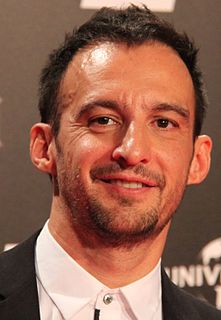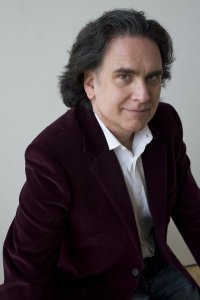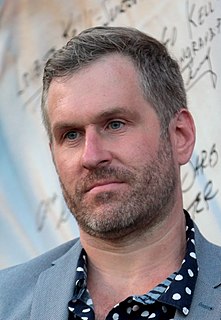A Quote by Noah Hawley
I come from a family of writers. My mom had been a writer, nonfiction books, and her mother was a playwright in the 1930s and '40s. And my twin brother, Alexi, is a writer on 'The Following.'
Related Quotes
My family background really only consists of my mother. She was a widow. My father died quite young; he must have been thirty-one. Then there was my twin brother and my sister. We had two aunts as well, my father's sisters. But the immediate family consisted of my mother, my brother, my sister, and me.
Oh, I love labels, as long as they are numerous. I'm an American writer. I'm a Nigerian writer. I'm a Nigerian American writer. I'm an African writer. I'm a Yoruba writer. I'm an African American writer. I'm a writer who's been strongly influenced by European precedents. I'm a writer who feels very close to literary practice in India - which I go to quite often - and to writers over there.
It feels as though a very disproportionate number of main characters are writers, because that's what the writer knows. Fair enough. But nothing bothers me more in a movie than an actor playing a writer, and you just know he's not a writer. Writers recognize other writers. Ethan Hawke is too hot to be a writer.
The people who review my books, generally, are kind of youngish culture writers who aspire to write books. When someone writes a book review, they obviously already self-identify as a writer. I mean, they are. They're writers, they're critics, and they're writing about a book about a writer who's a critic. So I think it's really hard for people to distance themselves from what they're criticizing.
My wife Jennifer's family is all from there. Jennifer grew up there, so we have personal ties forever - her mom, dad, her brother, her twin brother - so, there's certainly a personal connection there that will also be there. Also, even though I grew up in Omaha, I feel like I really grew up in Milwaukee.
I think the one reason that writers marry other writers - one of the reasons that I married another writer - was, I fell in love with that writer. But second of all, I had been married before and a source of marital strife was me needing to go away for a couple of weeks to write or it's Saturday and I think I just need to work today and not hang out with you.
One of the most useful parts of my education as a writer was the practice of reading a writer straight through - every book the writer published, in chronological order, to see how the writer changed over time, and to see how the writer's idea of his or her project changed over time, and to see all the writer tried and accomplished or failed to accomplish.
Writers are great lovers. They fall in love with other writers. That's how they learn to write. They take on a writer, read everything by him or her, read it over again until they understand how the writer moves, pauses, and sees. That's what being a lover is: stepping out of yourself, stepping into someone else's skin.




































